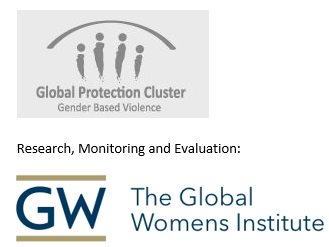- Older women face particular hardships during times of conflict that can put them at increased risk of violence. In addition to age, lack of mobility, weakened physical status or ill-health, older women face:
- Isolation. Older women may be isolated from their communities, abandoned by family members, or lose family members to the war, so that support systems they often relied on prior to conflict may no longer be available to them (Global Action on Aging, n.d.).
- Higher risk of poverty due to complex factors, including the inability to work and lacking or inadequate pension schemes (Global Action on Aging, n.d.).
- Difficulty adapting to change. Older women may adapt more slowly to change, especially traumatic change, and struggle to adapt to new environments and ways of life (Global Action on Aging, n.d.).
- Neglected health and nutritional needs. The health needs of older women may be overlooked based on the assumption that they are simply “old, not sick.” Because they are often not considered productive members of society, they may be given secondary consideration to younger people in terms of proper nutrition, nourishment, and shelter (Tewdoros, 2004).
- Risk of exploitation and abuse. Being dependant on family members for care increases their risk of being abused or exploited (Tewdoros, 2004). Like women and girls with disabilities, older women can be more at risk of physical and sexual abuse at the hands of caretakers. One report (Harvard Humanitarian Initiative and Oxfam International. 2010. “‘Now, the World is Without Me.’ An investigation of sexual violence in Eastern Democratic Republic of Congo.” http://www.oxfam.org/en/policy/now-world-without-me) showed that, between 2004 and 2008, 6% of women survivors of sexual violence were less than 16 years of age and 10% were 65 years of age or older (Panzi Hospital, South Kivu, DRC). As older women represent less than 10 % of the overall population in DRC, this shows just how vulnerable this group is.
- Like other marginalized populations, they may lack access to important information and be neglected by outreach efforts (Tewdoros, 2004).
- Older women have a great deal to contribute in their communities and environments, but these contributions are often overlooked. Their experiences, perspectives and knowledge can be invaluable during the post-conflict rebuilding phase, but may be discounted or ignored (Global Action on Aging, n.d.).
- For more information on the elderly in situations of armed conflict, see Krill, F. 2001.
Additional Tools
In 2002 UN Member States adopted the Madrid International Plan of Action on Aging (MIPAA). This document and Action Plan declares a commitment to the rights and needs of older persons in every country, and focuses on equal access to food, shelter, and medical care in emergency and conflict situations. The document also includes tools such as a step-by-step needs assessment, policy formulation, guidelines for planning and designing a plan of action, strategies for implementation, and guidelines for monitoring and evaluation. Available in English.
